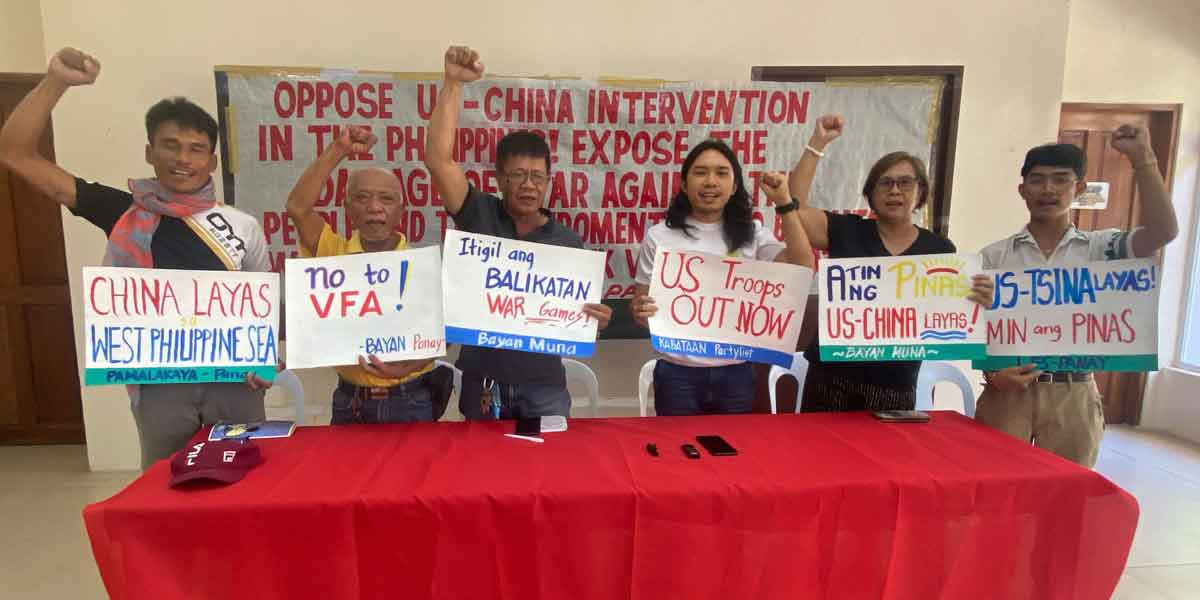By Prof. Enrique N. Soriano
Business owners must take action, move quickly, do things that they need to do. Now!
In a CNBC report a few weeks ago, a bold and factual declaration sums up the impact of the COVID-19, “Coronavirus wipes out $1.7 Trillion in US stock market value in two days!” I am not fanning an alarmist mentality here, but it is clear that investors are fleeing the riskier assets amid intense fears about the slowdown in global growth caused by the deadly virus. It didn’t help that the World Health Organization (WHO) already raised the risk of a global spread of COVID-19 to the highest level of alert and highest level of risk assessment in terms of impact.
Raising the rating to “very high” after several weeks in February and March that saw the contagion reach all the world’s inhabited continents is further justified with the WHO declaration that it is a reality check for every government on the planet to “wake up, get ready, this virus is on its way and every government must need to be ready! You have a duty to your citizens, you have a duty to the world to be ready!”
Time to Act!
For business owners, it is no longer an excuse to wait, to be complacent and to be caught unaware! It is time to ponder and ask yourselves these questions: Is my business affected? If yes, how significant is the drop in sales? If no, when? In Manila, Cebu or Boracay, hotels have registered sharp declines, some are registering single digit occupancy (OCC). RevPAR or revenue per available room is at a historical low. Whether you are in franchising, trading, retail, manufacturing, real estate or a service provider, significant declines should be expected. And it will soon compromise bottom lines. Are you prepared to just wait or do something? What if this continue in 2, 4, 6, 8 months?
Last year I flew to Europe to facilitate a strategic planning session for a diversified conglomerate with presence in EU. During the three-day planning session, I raised a VUCA challenge to its senior management team. In my opening day speech, my strategic team reiterated the critical need for the organization’s SBU (strategic business unit) heads to collectively focus, align and measure their initiatives. Additionally, I warned them to brace for impact should any regional or global event happen. That global event is presently unfolding, sales are diving, markets are spooked and there is so much uncertainty. Thankfully the group prepared!
We are now in the midst of a roller coaster ride because of COVID-19! And the best way to explain this is by way of managing VUCA.
Volatility : The virus is spreading and markets are sliding
Uncertainty : The Unpredictability of the situation is creating fear
Complexity : Many extenuating events, confounding issues leading to chaos
Ambiguity : Unclear and the haziness of reality causing confusion
The antidote of VUCA is to counter it with another version of VUCA positive values.
Vision : Create conditions to accelerate growth, explore new drivers
Understand : Manage Expectations, determine risks and rewards
Clarity : Define Roles, Rules, Responsibilities, measure actions
Anticipate : Be agile, adjust, prepare and address threats and opportunities
I also highlighted that reversal of fortune in any industry is happening and any misstep can cause the business to free fall overnight. With the COVID-19 spreading to Europe, the Middle East and North America with no chance of slowing down, local companies, big or small must be prepared. There is no more excuses.
On Sun, Mar 1, 2020 at 12:01 PM Enrique Soriano <esoriano@wbadvisoryasia.com> wrote:
CONVID-19 Bracing for Uncertainty and Impact!
The coronavirus now officially tagged as CONVID-19 has so far infected close to 87,000 people worldwide and claimed the lives of over 3,000—surpassing the toll from the SARS outbreak of 2002-03. Last month, the World Health Organization (WHO) officially declared it a global health emergency. This virus, which has now infected people in more than 25 countries, has sent jitters across global capital markets. Last week was frenetic, I had to fly to three countries just to attend emergency board meetings of companies with manufacturing presence in China. Almost overnight, Chinese manufacturing hubs stopped operating. Naturally as trade gets disrupted and workers are discouraged from going to factories, production of goods will stop. At a macro level, the economic impact of such an outbreak are difficult to fathom.
When the factory of the world suddenly stops producing goods, recipient companies all over the world will feel the heat. The World Trade Organization declared China as the biggest exporter and second biggest importer of merchandise. And it plays a crucial role in the global value chain as a hub of both demand and supply. Any long-term disruption in economic activity in China is bound to keep the markets on its toes.
As demand dries up, stock markets will take a beating and highly leveraged companies will suddenly turn south. On the bright side, despite the uncertainty in the marketplace, I do not anticipate any long-term damage. The outbreaks of SARS, swine flu, Ebola and others saw an initial sell-off in the markets, but they quickly bounced back and offset the losses. With the concerned authorities working on quarantine measures, news reports suggest the epidemic could plateau in the next few weeks. But this early, we can expect a downgrade in full year growth forecast. With China taking a beating, its neighbors will surely write off some gains last year. Similarly, to a domino effect, companies will mitigate their internal risks by downscaling operations, gradually letting go of manpower, restructure debt, etc.
Let me now resume part two of my article by focusing on how family owned enterprises (FOE) can regroup and formulate strategies in the face of one of the biggest threats that caught world unprepared
- With recession in the air and sales sliding, the key senior leader should open the floor for suggestions with regard to the kind of changes or intervention needed, why the need to change and discuss the pros and cons of every possible initiative. Important that other family members participate as they may have better ideas in navigating through rough patches
- Identify the role, scope of responsibilities and capabilities of each family member that will be affected by change. Change will affect everyone in the family business. Each of them would have to be able to understand how the change would directly or indirectly affect their roles and line of activity. Their skills would have to be assessed in order to see how they could cope with the change.
- Determine how the decision making process would have to be done. Decide whether the decision about the change would be based on voting or by the founder’s word or the department heads recommendation. Should it need the collective votes of members of the Business Council or Board of Directors? For example, if the family business would have to cut back on operations or reduce manpower, any sensitive decision could be made according to pre agreed family business’ policies.
- Develop the skills of the members of the family through training. Training is highly significant during the change process as it would prepare the individuals being subject to it psychologically, emotionally, physically, intellectually and socially.
- Create guidelines that would have to be agreed upon by the whole family. Simple guidelines that are comprehensive with regard to the change process would have to be agreed upon by all members of the family. Avoid assumptions and be specific. It is important that everyone is informed and agrees to abide.
***
Prof Enrique Soriano is a World Bank/IFC Governance Consultant, Senior Advisor of Post and Powell Singapore and the Executive Director of Wong + Bernstein, a research and consulting firm in Asia that serves family businesses and family foundations. He was formerly Chair of the Marketing Cluster at the ATENEO Graduate School of Business in Manila, and is currently a visiting Senior Fellow of the IPMI International School, Jakarta.
He is an associate member of the Singapore Institute of Directors (SID) and an advisor to business families worldwide, a sought after governance speaker at conferences, and book author, more than 200 articles and publications, including two best-selling Family Business books (Ensuring Your Family Business Legacy 2013 and 2015). You can read Prof Soriano’s business articles for free at www.Faminbusiness.com


















